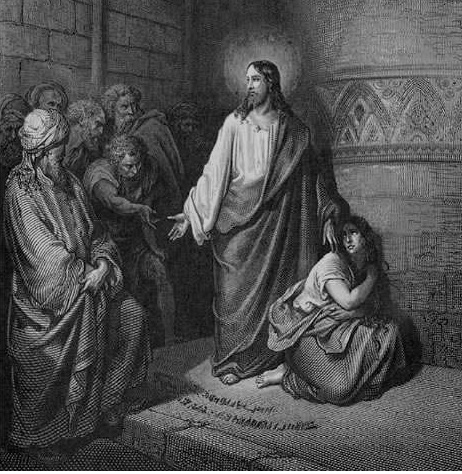But you are a chosen race, a royal priesthood, a holy nation, a people for his own possession, that you may proclaim the excellencies of him who called you out of darkness into his marvelous light. (1 Peter 2:9 ESV)
The apostle Peter emphasized how the church is the antitype of Israel’s priesthood, through Jesus in 1 Peter 2:4–10, called to proclaim His grace, and His mercy for saving us from sin and the world.
As I ponder the New Covenant (NC), I see a distinctly different agreement with God, radically new in contrast to what He had with old Israel who failed to glorify God and proclaim His glory to the world. This covenant relationship now passes to the Christian church. The NC extrapolates –transitions from being gifted to old Israel to being gifted to the church as the heirs in Christ.
The identity of the church presents as the new Israel through Christ. Jesus, the resurrected Messiah, is the “living stone” and the cornerstone laid in Zion (Ps 118:22; Isa 28:16). Those conjoined to Him are “living stones” and are being built up as God’s true (antitypical) temple, serving as priests and offering spiritual sacrifices (1 Pet 2:5; cf. Eph 2:20–22).
All believers have their identity in Christ
The church is the fulfillment of Israel only in Christ. It defines itself as the true/antitypical Israel (1 Cor 12:12–13; Gal 3:26–29). All the promises and the inheritance is theirs through him (Rom 4:12–17; 2 Cor 6:16–7:1; Eph 1:11–23; Heb 9:15), as God’s adopted sons (Rom 8:15–17; Gal 4:4–7). In Christ, the connection to Abraham, His ancestor, and the promises given to the patriarch about the many nations now transpose to the Christian (Gal 3:29).
Jesus is the antitype of OT Israel. His disciples are the true (antitypical) circumcision – hearts being inwardly right with God — true Jews (Phil 3:3; Col 2:11, Rom 2:28–29), and Abraham’s true seed (Rom 4:16–18; Gal 3:7–9). It is evident that true Jewish Christians cannot be recipients of the conditional Old Covenant/Testament (OC) nationalistic promises apart from Gentile Christians in a future millennial stage. Dispensationalism erroneously believes Israel and the church are at arms-length — separate, implying that there are two peoples of God, both separately given two distinct plans — one more physically and geographically rooted for Israel and another metaphorically as antitype for the church further separated with time-gaps.
The logic of the NC in Paul’s and John’s writing, and Peter’s epistles (he recognized Paul’s epistles as Scripture in 2 Peter 3:15,16) unpack the NC as offered conditional on believing in Jesus Christ. When we see Paul and Peter teaching that the NC transitions us out of this dispensationalist dichotomy1 of two plans, we are free to see the church as under one Headship, Jesus Christ in the new creation with all things made new — restricting Israel’s OC mind-view in Christ.
As well we cannot collapse the church into Israel dependent upon how one puts the covenants together and interprets the many titles and designations of Israel. These are shadow-types now directly applied to the church in the NC metaphorically in Christ, blowing apart and unbinding the shadow-types of the OC versus the NC’s new way — the antitypes presenting in reality, albeit metaphorically in the NC.
The Temple in Jerusalem is no longer the center of God’s purposes within old Israel. In the NC, it is the church of Jesus Christ, composed of believers who now together with Him constitute the temple of God.
Now unified with Christ, God’s believers, as the new temple of God, take on Israel’s identity made up of God’s priests who communicate God’s glory to the nations mediating God’s blessings in the world.
Peter clearly depicts the church as God’s chosen race, a royal priesthood, holy nation, special possession, and constituted people accomplished through His amazing mercy (1 Pet 2:9–10,5). Apostle Paul in Ephesians 3:3-6 NLT also makes this clear that the NC plan was a secret (or mystery in the NASB) now revealed in Christ extending Israel’s inheritance from and now to the entire world (Gentiles).
Transitioning from the Old Covenant to the New Covenant
Israel’s constitutional texts are extrapolated into a new language for the church by the apostles from Israel’s old language noted in Exodus 19:6 NASB; Isaiah 43:20–21 NASB; Hosea 2:23 NASB; 1:9-11.
Israel was established as God’s people following the exodus exhibiting the divine goal of that OC relationship which was conditional on obeying God’s covenant. Only then would it be known as God’s treasured possession, a kingdom of priests, and a holy nation. History reveals that Israel did not obey in many ways over the ancient centuries, and killed their prophets and eventually their own Messiah.
Peter applies these designations to the church conditional on believing in Christ for covenant relationship. The church embodies the people of the new exodus coming out of the world and its unbelief. Further, he emphasizes the priestly role of the use of blood, now seen in the NC as the redemption by the blood of Jesus Christ (compare 1 Pet 1:2 NASB; Exod 24:6–8 NASB)
Regardless of ethnic background, we can see the church as redeemed from the world of disobedience to Yahweh (God the Father) — due to His unmet conditions spelled out in the OC. The church is now the true (antitypical) race that God redeemed through the Passover lamb of the greater exodus (1 Pet 1:19 NASB; Isa 53:7 NASB; 1 Pet 1:2 NASB; Exod 24:6–8 NASB).
Peter transpositions from the privileges belonging to Israel as now belonging to Christ’s church – not to replace Israel, but to fulfill the promises made to Israel – conjoined to include all Jews and Gentiles who belong to Christ as now part of the new people of God. He identifies the church as a singular holy nation (1 Pet 2:9). The church evolved progressively from the OC nation of Israel pointing forward to a singular, multi-ethnic nation of the redeemed—the church—overcoming the world by obedience to Christ—unified from every nation on earth as seen in Revelation 5:9; 7:9; 21; 22-26.
The ‘nations’ and their kings who enter the gates of the New Jerusalem in Revelation 21: 24–26 quoted above, are identified by John in Rev 22:14 with those ‘who wash their robes’ and thereby are rewarded the rights of obedience, ‘the right to the tree of life and may enter the city by the gates.’ Conversely, it is a very serious and solemn fact that the church is contrasted with the faithless that are designated for eternal destruction (Rev 21:8; 20:15).
Continuing to be faithful to our original commitment to Jesus Christ and his saving work, consummates in the view of Revelation 21–22 depicting the city of God wherein the people with Jesus and God are unified as One (see John 17).
1 I am indebted to Dr. Stephen J. Wellum, whom I met in a convention on the NC in Pennsylvania a few years back. He is the editor of a new book, Progressive Covenantalism: Charting a Course between Dispensational and Covenantal. B&H Publishing Group. He has helped me see Dispensationalism in the NC Light.









